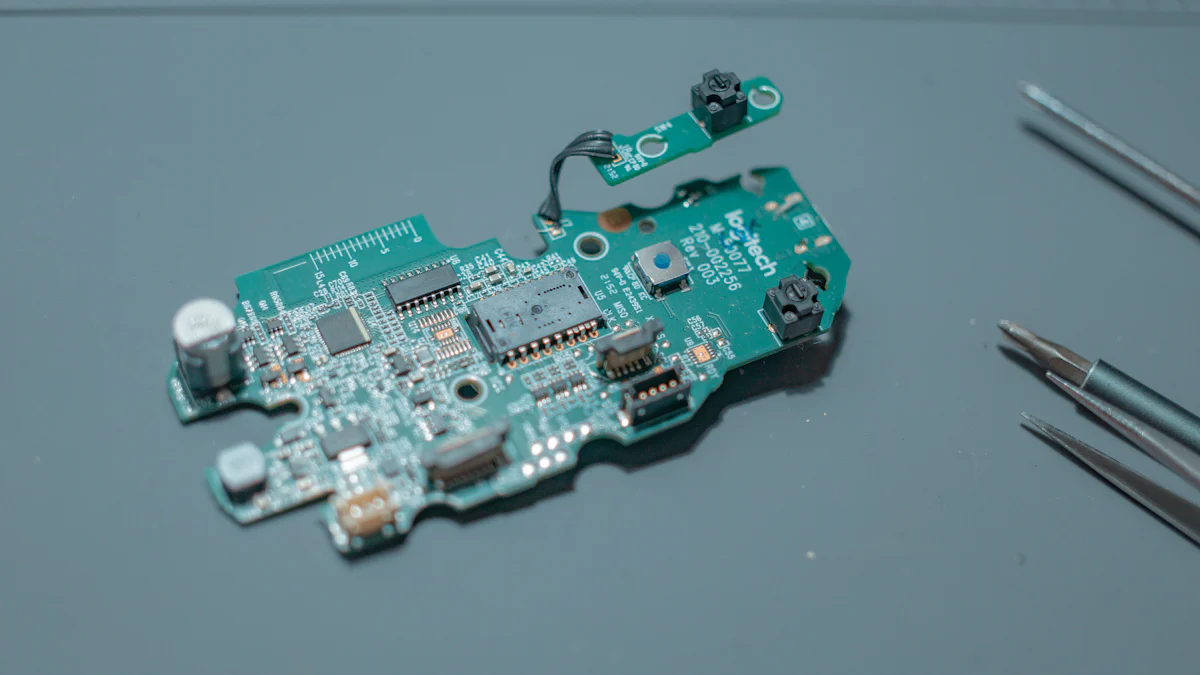
Fuel cell turbine air blower systems present a complex challenge in modern energy solutions. These systems demand precise control to ensure optimal performance. Understanding the intricacies of their control systems is crucial. Effective management of these systems directly impacts efficiency and reliability. The turbine blower must be precisely tuned to the fuel cell’s real-time conditions, requiring sophisticated control systems. By mastering these challenges, industries can unlock the full potential of fuel cell technology, driving innovation and sustainability.
Overview of Fuel Cell Technology

Fuel cell technology represents a significant advancement in clean energy solutions. It offers a sustainable alternative to traditional fossil fuels by converting chemical energy into electricity through an electrochemical reaction. This process involves hydrogen and oxygen, producing only water and heat as byproducts. The efficiency and environmental benefits of fuel cells make them an attractive option for various applications, including transportation, stationary power generation, and portable power devices.
Basics of Fuel Cells
Fuel cells operate on a simple yet effective principle. They consist of an anode, a cathode, and an electrolyte membrane. Hydrogen gas enters the anode, where it splits into protons and electrons. The protons pass through the electrolyte membrane, while the electrons create an electric current as they travel through an external circuit to the cathode. At the cathode, the electrons, protons, and oxygen from the air combine to form water. This continuous flow of electrons generates electricity, providing a reliable power source.
Role of Fuel Cell Turbine Air Blower
The Fuel Cell Turbine Air blower plays a crucial role in the operation of fuel cells. It ensures the delivery of the right amount of air to the fuel cell stack, which is essential for maintaining the electrochemical reaction. The turbine blower needs to be precisely tuned to the fuel cell’s real-time conditions, requiring sophisticated control systems. This precision is vital for optimizing the performance and efficiency of the fuel cell system.
Importance of Airflow Management
Effective airflow management is critical in fuel cell systems. The Fuel Cell Turbine Air blower must deliver a consistent and adequate supply of air to support the reaction between hydrogen and oxygen. Proper airflow management ensures that the fuel cell operates at its optimal efficiency, preventing issues such as fuel starvation or excess air, which can lead to reduced performance or damage to the system. By maintaining the correct airflow, the turbine blower contributes to the overall reliability and longevity of the fuel cell.
Impact on Fuel Cell Efficiency
The efficiency of a fuel cell system heavily depends on the performance of the Fuel Cell Turbine Air blower. A well-functioning blower ensures that the fuel cell receives the necessary oxygen to sustain the electrochemical reaction. This not only maximizes the power output but also minimizes energy losses. By optimizing the airflow, the turbine blower enhances the fuel cell's efficiency, making it a more viable and sustainable energy solution. Industries that invest in advanced turbine blower technologies can achieve significant improvements in fuel cell performance, driving innovation and sustainability in the energy sector.
Challenges of Turbine Blower Control Systems

Fuel cell turbine air blower systems face numerous challenges, particularly in their control systems. These challenges must be addressed to ensure optimal performance and efficiency.
Control System Complexity
The complexity of control systems in fuel cell turbine air blowers cannot be overstated. These systems must integrate seamlessly with fuel cell operations. They require precise tuning to match the fuel cell's real-time conditions. This integration ensures that the blower delivers the correct amount of air, maintaining the delicate balance needed for efficient energy conversion.
Integration with Fuel Cell Operations
Fuel cell turbine air blowers must work in harmony with the fuel cell stack. They need to adjust airflow based on the fuel cell's demands. This integration is crucial for maintaining the electrochemical reaction's efficiency. By aligning the blower's operation with the fuel cell's needs, industries can enhance system performance and reliability.
Real-time Monitoring and Adjustments
Real-time monitoring is essential for effective control of fuel cell turbine air blowers. These systems must constantly adjust to changing conditions. Sensors and advanced algorithms play a vital role in this process. They provide the data needed to make quick adjustments, ensuring that the blower operates at peak efficiency. This capability minimizes energy waste and maximizes power output.
Thermal Management Issues
Thermal management presents another significant challenge for fuel cell turbine air blowers. Proper heat dissipation is critical to prevent overheating and maintain optimal operating temperatures.
Heat Dissipation Techniques
Effective heat dissipation techniques are necessary to manage the thermal load in fuel cell systems. These techniques include using heat exchangers and advanced cooling systems. By efficiently removing excess heat, these methods protect the system from damage and ensure consistent performance.
Maintaining Optimal Operating Temperatures
Maintaining optimal operating temperatures is crucial for the longevity and efficiency of fuel cell turbine air blowers. Temperature fluctuations can lead to reduced performance and potential system failures. Implementing robust thermal management strategies helps maintain stable temperatures, enhancing the system's overall reliability.
Energy Density Concerns
Energy density remains a concern for fuel cell turbine air blower systems. Balancing power output and efficiency is essential to maximize the system's potential.
Balancing Power Output and Efficiency
Fuel cell turbine air blowers must balance power output with efficiency. This balance ensures that the system delivers maximum energy without unnecessary losses. By optimizing this balance, industries can achieve greater energy efficiency and reduce operational costs.
Innovations in Energy Storage Solutions
Innovations in energy storage solutions offer promising avenues for addressing energy density concerns. Advanced storage technologies can enhance the efficiency of fuel cell systems. These innovations provide more reliable energy storage, supporting the continuous operation of fuel cell turbine air blowers.
Fuel cell turbine blower systems face significant challenges in control systems, thermal management, and energy density. Addressing these issues is crucial for optimizing performance and efficiency. Future advancements may include enhanced real-time monitoring technologies and innovative energy storage solutions. These developments promise to improve system reliability and sustainability. Continued research and development in this field will drive innovation, ensuring that fuel cell technology remains a viable and efficient energy solution. Industries must invest in these advancements to unlock the full potential of fuel cell systems and contribute to a sustainable future.





